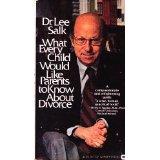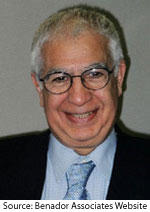Stephen Covey Quotes - Page 13

Stephen R. Covey (1994). “Daily Reflections for Highly Effective People: Living THE SEVEN HABITS OF HIGHLY SUCCESSFUL PEOPLE Every Day”, p.192, Simon and Schuster
The ability to subordinate an impulse to a value is the essence of the proactive person.
Stephen R. Covey (2016). “The 7 Habits of Highly Effective People: Powerful Lessons in Personal Change Interactive Edition”, p.83, Mango Media Inc.
How you treat the one reveals how you regard the many, because everyone is ultimately a one.
Stephen R. Covey (2012). “The Wisdom and Teachings of Stephen R. Covey”, p.67, Simon and Schuster
Distinguish between the person and the behavior or performance.
Stephen R. Covey (1992). “Principle Centered Leadership”, p.121, Simon and Schuster
Stephen R. Covey (2013). “The 8th Habit: From Effectiveness to Greatness”, p.333, Simon and Schuster
Stephen R. Covey (2016). “The 7 Habits of Highly Effective People: Powerful Lessons in Personal Change Interactive Edition”, p.121, Mango Media Inc.
Stephen R. Covey (1991). “Principle-centered leadership”, Free Press
Stephen R. Covey, A. Roger Merrill, Rebecca R. Merrill (1995). “First Things First”, p.112, Simon and Schuster
Stephen R. Covey (2016). “The 7 Habits of Highly Effective People: Powerful Lessons in Personal Change Interactive Edition”, p.164, Mango Media Inc.
Paradigms are powerful because they create the lens through which we see the world.
Stephen R. Covey (2016). “The 7 Habits of Highly Effective People: Powerful Lessons in Personal Change Interactive Edition”, p.31, Mango Media Inc.
Stephen M. R. Covey (2008). “The Speed of Trust: The One Thing that Changes Everything”, p.49, Simon and Schuster
Stephen R. Covey (2016). “The 7 Habits of Highly Effective People: Powerful Lessons in Personal Change Interactive Edition”, p.51, Mango Media Inc.
In the last analysis, what we are communicates far more eloquently than anything we say or do.
Stephen R. Covey (2016). “The 7 Habits of Highly Effective People: Powerful Lessons in Personal Change Interactive Edition”, p.18, Mango Media Inc.
Stephen R. Covey (1992). “Principle Centered Leadership”, p.61, Simon and Schuster
The great apparent dichotomy is that the more we give, the more we get.
Stephen R. Covey, A. Roger Merrill, Rebecca R. Merrill (1995). “First Things First”, p.343, Simon and Schuster
Stephen R. Covey (1994). “Daily Reflections for Highly Effective People: Living THE SEVEN HABITS OF HIGHLY SUCCESSFUL PEOPLE Every Day”, p.235, Simon and Schuster
Stephen R. Covey, A. Roger Merrill, Rebecca R. Merrill (1997). “First Things First Every Day: Daily Reflections- Because Where You're Headed Is More Important Than How Fast You Get There”, p.115, Simon and Schuster
Inspire (from the Latin inspirare) means to breathe life into another.
Stephen R. Covey (2013). “The 8th Habit: From Effectiveness to Greatness”, p.31, Simon and Schuster






